Detroit feels almost otherworldly in winter, some areas frozen and barren; others filled with humanity––but the idea of farming seems improbable. Cold as it is, Detroit has a reputation as a food desert, one that lifelong Detroiter Michelle Lutz says there are people working to combat. And contrary to popular belief, sustainable produce can be found throughout the city thanks to a growing number of urban farms.
Thus is the state of Motor City in 2016, where, across its 130 square miles there are pockets of life in which people––mostly young entrepreneurs––are attempting to start something new with the unused groundwork. It is that dichotomy that makes Detroit unique; there is infrastructure, but resources are scarce.
Beyond this, there are people who support local businesses, but this buying demographic spread out. If one restaurant is filled to capacity, the next might be in another neighborhood, a drive away. So for a restaurant to thrive as does Andy Hollyday’s Selden Standard, there are larger cogs spinning beyond a solid menu or cocktail program.
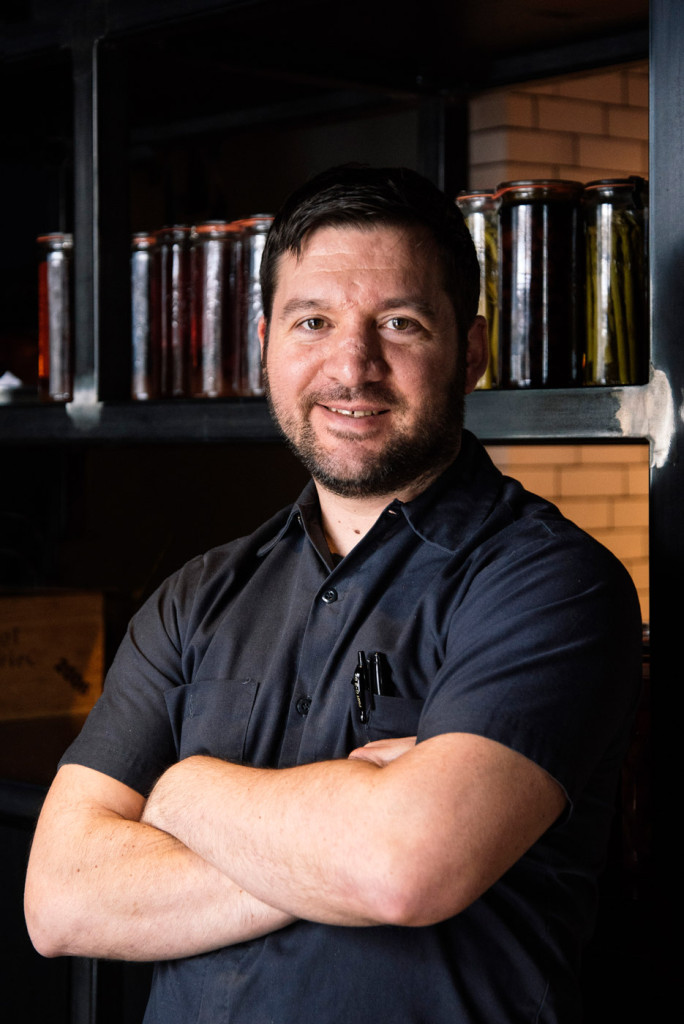
Andy Hollyday, Partner & Executive Chef
—
At various points throughout outer Midtown’s Second Street, a keen observer might look between two buildings and notice nothing but empty land; quite the opposite of urban sprawl. Within the neighborhood, smaller gaps between the Queen Anne revival buildings give off a sense impermanence, a missing tooth in a wide grin.
In fact, when added together, vacant lots and empty land throughout the city total to about 40 square miles. When cemeteries and public parks are removed of that equation, there are roughly 22 square miles of usable land. That leaves plenty of room, as Lutz explains, to figure out how urban farmers can better serve the community. As the farm’s Manager for RecoveryPark Farms, Lutz is at the forefront of Detroit’s urban farming initiative. Throughout the city, there are roughly 1,400 urban gardens. This could range from a small root garden beside a church to a full scale farm to a partitioned community plot.
Like RecoveryPark Farms, many of Detroit’s urban farms are a direct source to various institutions, from restaurants to schools, around the city. One could call this style of business-to-business supply ‘farm-to-table,’ but that would miss the point.
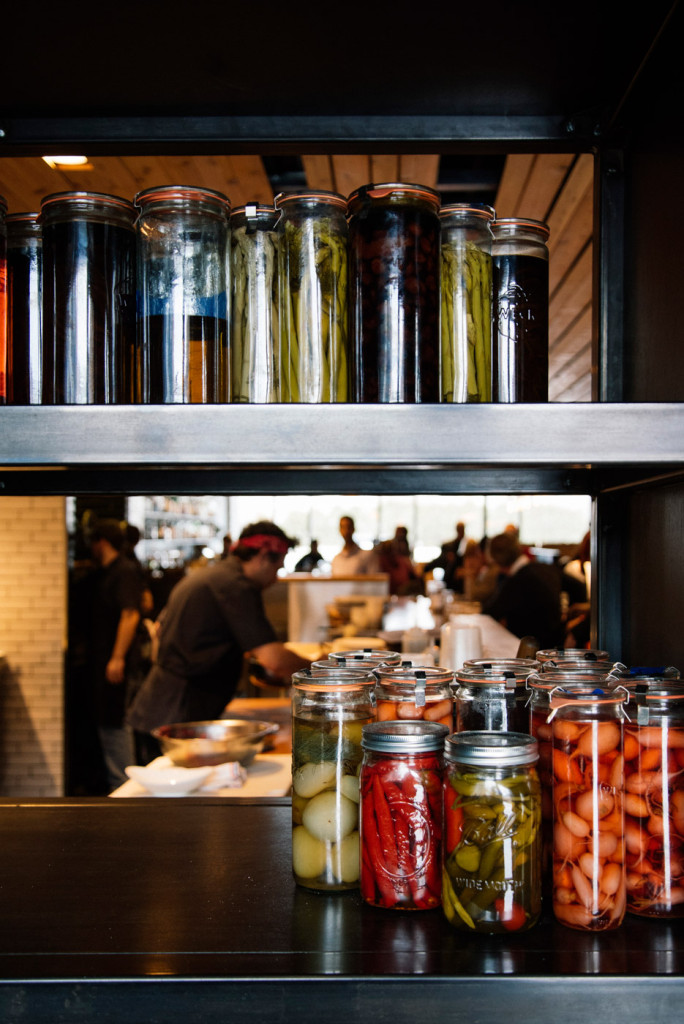

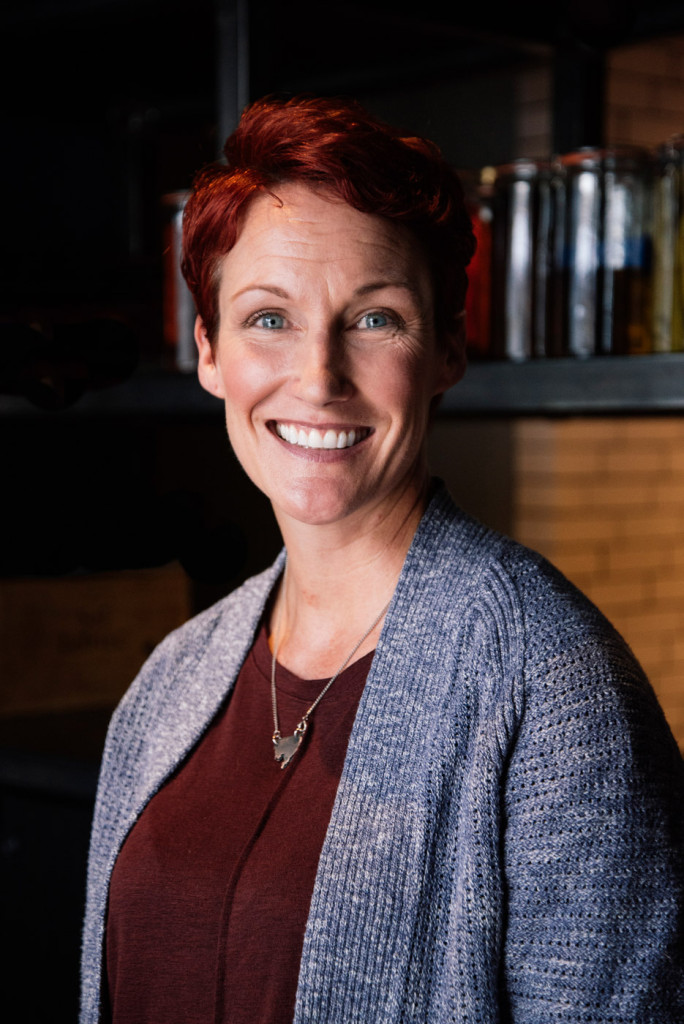
Michelle Lutz, RecoveryPark Farms Manager
—
In the early 1970s, Bay Area restaurateur Alice Waters pioneered a farmer-direct supply network for her restaurant, Chez Panisse. Sourcing directly from the farmer focused on produce grown both organic and locally, the philosophy was to promote agricultural sustainability, creating a menu around what was grown close to her location. And while perhaps not the singular founder of this type of cuisine, Waters’ left a lasting impression on how restaurant food can both impact and serve the surrounding community.
In Berkeley, Waters had California’s lush, agriculturally rich topography to draw from. Other cities, like Detroit for instance, might not have those same resources. When a broken economy and unused infrastructure dominate the surrounding community’s narrative, sourcing locally works twofold. The Selden Standard works in tandem with Detroit’s burgeoning urban farm initiative, and this includes sourcing produce from RecoveryPark Farms.
With over 21 years of agricultural experience, Lutz has a strong background in farming prior to her work with RecoveryPark. “Growing up, we had a garden plot,” she says. In 1995, Lutz bought her first farm, Maple Creek in Yale, Michigan. “I was so committed to helping small family farms,” she says, “and agriculture being part of the norm.”
She sold produce directly to a restaurant about 15 years ago, and that became part of her business model—no middle man, no outside suppliers. One of her first big accounts was The Henry Ford Museum, which needed period-appropriate heirloom varietals. Soon she began supplying area hospitals. Over the last five years, Lutz explains, she has witnessed firsthand a change in the way restaurants across the city source their produce.
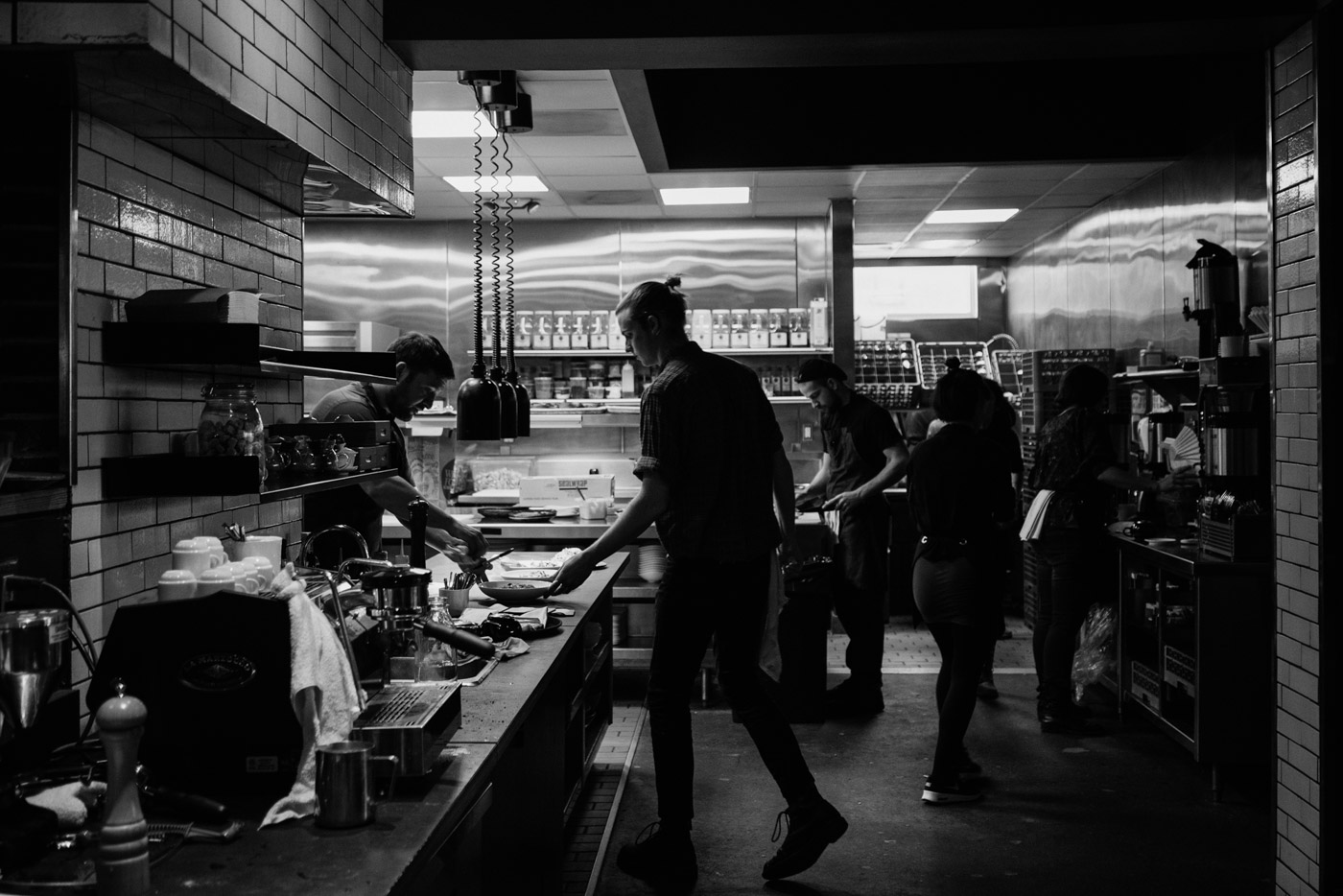
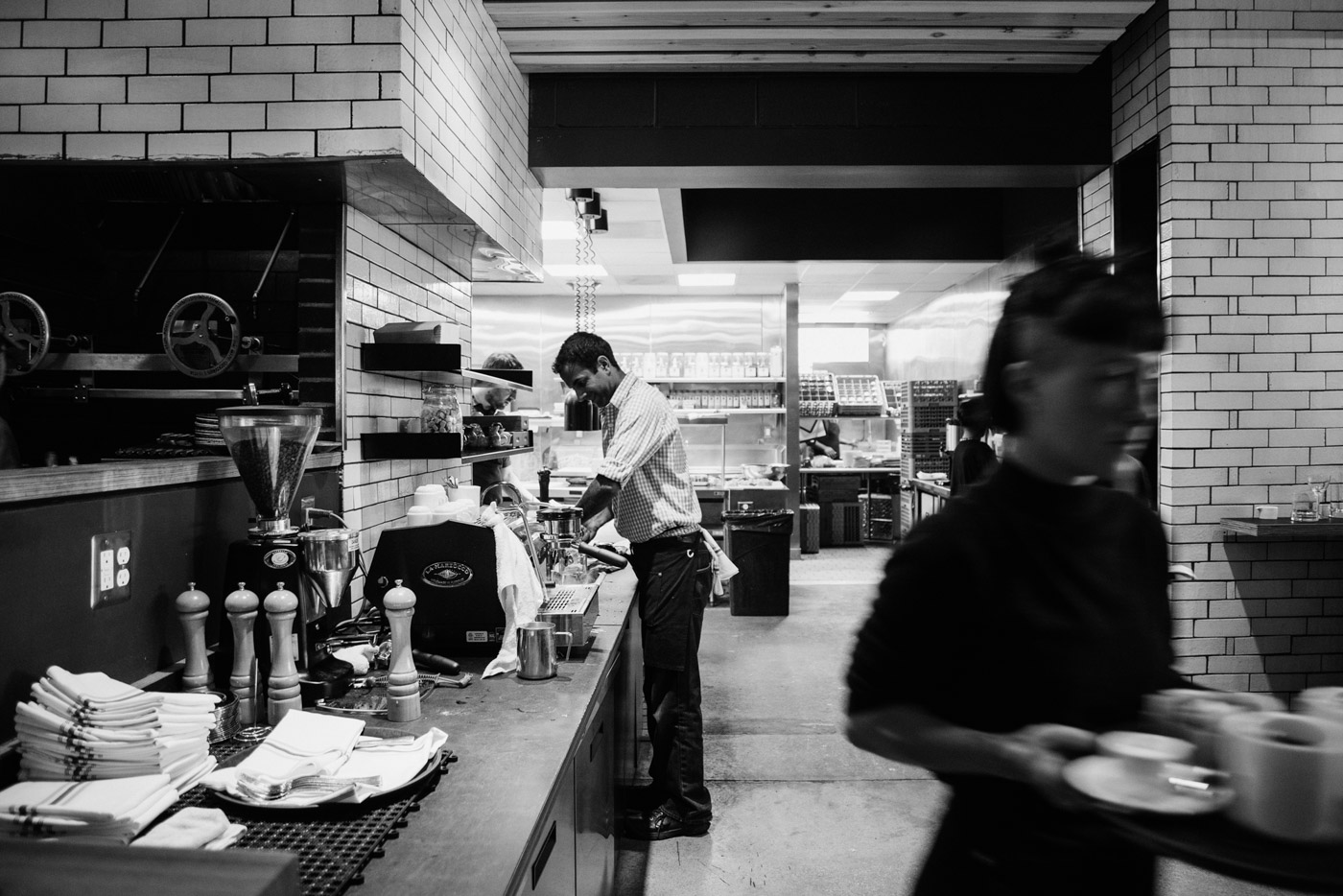
Lutz aims to educate the city on the power of locally grown produce through the public school system. “There are 79 schools that actually have gardens and agriculture programs” she says, “And that is instrumental. We have kids who literally eat at gas stations and corner stores. Maybe they’ve seen an apple, an orange, maybe a banana, but they’re not seeing actual food. So there’s a lot of activity in Detroit to provide access to fresh, healthy foods for our community members.”
Lutz continues, noting the job opportunities as well. “Agriculture is supposed to be our second largest industry in Michigan,” she says, “And we don’t treat it like that.” Unemployment is roughly 16% across the city, and for many people not trained for the technical jobs linked to large employers like Detroit-founded Comerica Incorporated, urban farming becomes a plausible way to make an income.
RecoveryPark also makes an effort to hire those coming out of incarceration and drug rehabilitation programs. “I want to pay these guys a living wage,” Lutz says. “And having people like Hollyday who are willing to pay premium prices for produce makes that a reality.”
Andy Hollyday is the Executive Chef of the Selden Standard. Not a Detroiter originally, Hollyday is a Midwesterner from Toledo, Ohio that touched down in Detroit about 10 years ago. “I would pass through Detroit for ballgames,” he says, “But that was it.” His sister lived in metro Detroit, and he came to stay with her as a pit stop between travelling, but that pit stop became something more.
“I found a great opportunity down at Roast,” he says of the Michael Symon restaurant, “So I moved into the city proper. It’s a fascinating place. A lot of people look at it from the outside and think of Detroit as a failed place but the movement isn’t obvious. Everyone who’s here is here with a purpose. Whether it be a non-profit, restaurants, fixing up a house. Everyone here is hardworking. That’s number one why I stayed––there’s just good people here.”

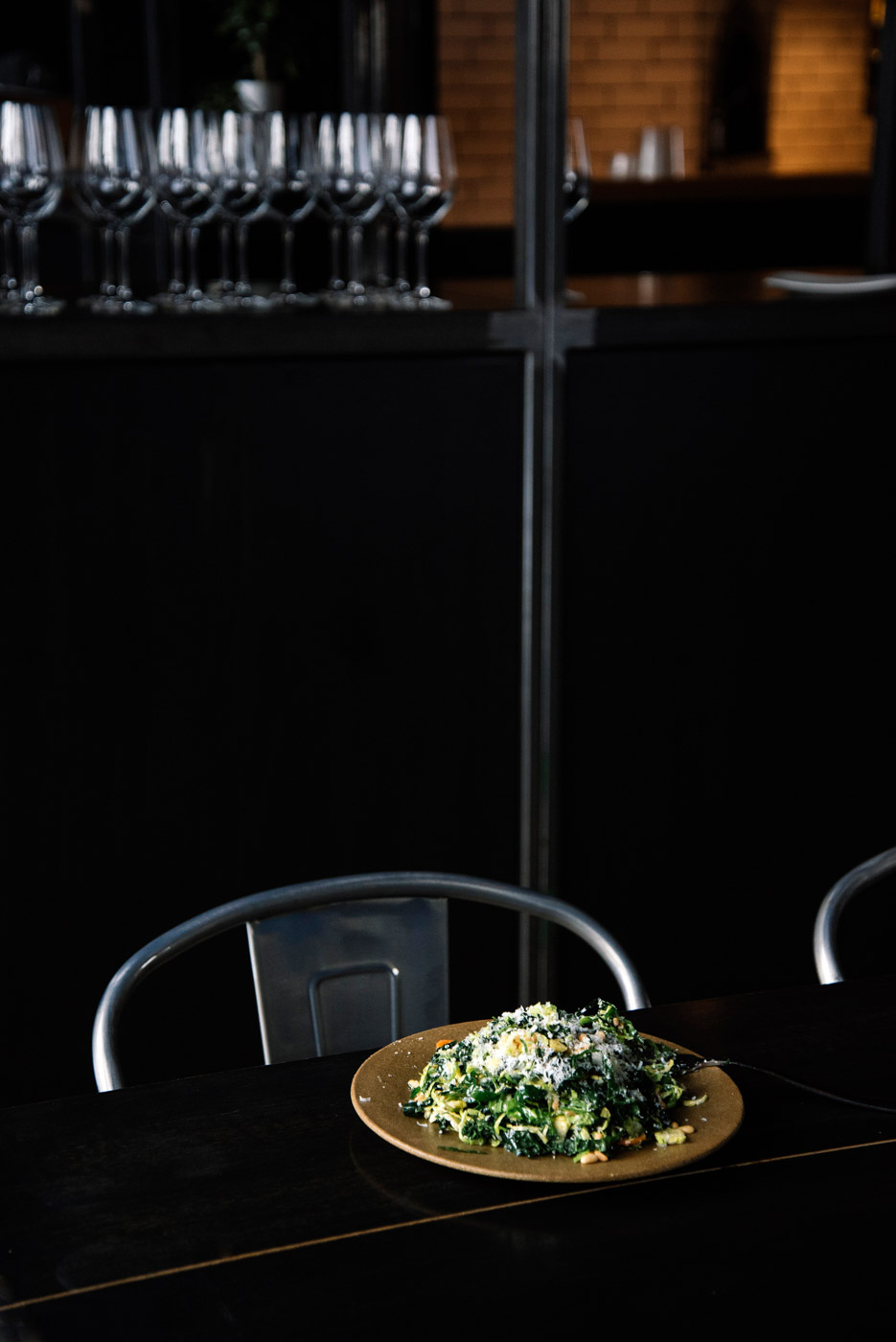


“Everyone who’s here is here with a purpose.”
At Roast, Hollyday was introduced to Detroit’s growing urban farm network. He loved the idea of supporting local farms and felt it would work within his vegetable heavy menu. As Selden goes into their third year of business, it is clear that in some sense the attitude in Detroit’s growing food scene has shifted away from the corporate, third party distributor model for produce buying.
“It’s about relationships,” Lutz says. “I know these people, they’re my friends. When I go pick for Selden, I’m excited in the morning. When Andy says to me, ‘I’m interested in you selling this, do you have that? Can you grow it?’ That’s perfect.”
Selden’s clientele has responded with overwhelming support. Likewise, momentum is starting to pick up across the city’s food scene. “It isn’t obvious,” Hollyday says, “Everything is underground so you have to know where to look.” A few years ago, the corner of Selden and Second would not have been one of these places. The neighborhood, Hollyday explains, has slowly transformed over the years.
For many years now, Detroit’s Midtown has been a thriving neighborhood in the city. It is close to Wayne State University, the Detroit Institute of Arts, and professional hockey team, the Detroit Red Wings will be playing in a new stadium close by. Yet, as Hollyday points out, a few blocks make a difference. Selden is not quite in Midtown, but on the border of the area. Hollyday explains that he was looking at buildings in Midtown, but it was much cheaper on the outskirts. “The park next-door was vacant,” he says. “Some unsavory characters there.”
“People said Hollyday was really pushing the limits of Midtown,” Lutz says.
Hollyday felt that expanding outside of Midtown, which was deemed safe and lively, was possible. “We weren’t trying to be pioneers or anything like that,” he says. Hollyday and his business partner Evan Hansen understood the momentum of the city.

“We wanted to bring some life to this neighborhood,” Hollyday says. “We knew people were moving back to Detroit and we wanted to offer something good to the city. But we didn’t want to push anyone out.”
“You will have these people who move into a neighborhood,” Lutz says, “And not get into touch with the community around it.” Gentrification is as loaded a word in Detroit as it is in other cities across the United States. Adding Detroit’s marked history of segregation and the socioeconomic gaps, bringing something new to a community is polarizing. Recently, Lutz was at a panel that touched on food culture and community engagement throughout the city. “We talked about how people were opening up businesses and not respecting the neighborhood,” she says. “And Andy’s name came up.”
“Oh god,” Hollyday says.
“It was in a positive way,” Lutz laughs. “About how Andy came into this community.”
Due to the Selden’s proximity to a shelter a few blocks away, it would be impossible to not acknowledge the homelessness in the surrounding area. Hollyday explains that they’ve seen many cases of homelessness and mental illness. “I’m always very conscious of who we are and how we act in this neighborhood,” Hollyday says. “Any time someone comes through; I make sure to introduce myself. Ask them how they are. And just talk to them. I never say get the hell out of here, because that’s not nice.”
While the small park directly next door to the Selden has been revitalized since the restaurant opened, many homeless people congregate. “Homeless people aren’t breaking laws though,” Hollyday says. “They’re welcome here. Some people who hang around outside that have been here for a long time. We didn’t come here to push them out. We’re very conscious of that how we handle ourselves. We talk to our staff about it daily.” Hollyday also works with Cass Community Services, a social services agency that works to provide food, shelter and jobs for the city’s homeless population.
Lutz has a similar discourse with the neighborhood around RecoveryPark’s newest location. Lutz describes this as a compromised neighborhood, but there is a sense of optimism in her voice. “Our attitude is to embrace the community,” she says. “And not push them away. People always ask me if I carry a gun, and I’m like, ‘Absolutely not.’ You just have to get out there and talk to people.”
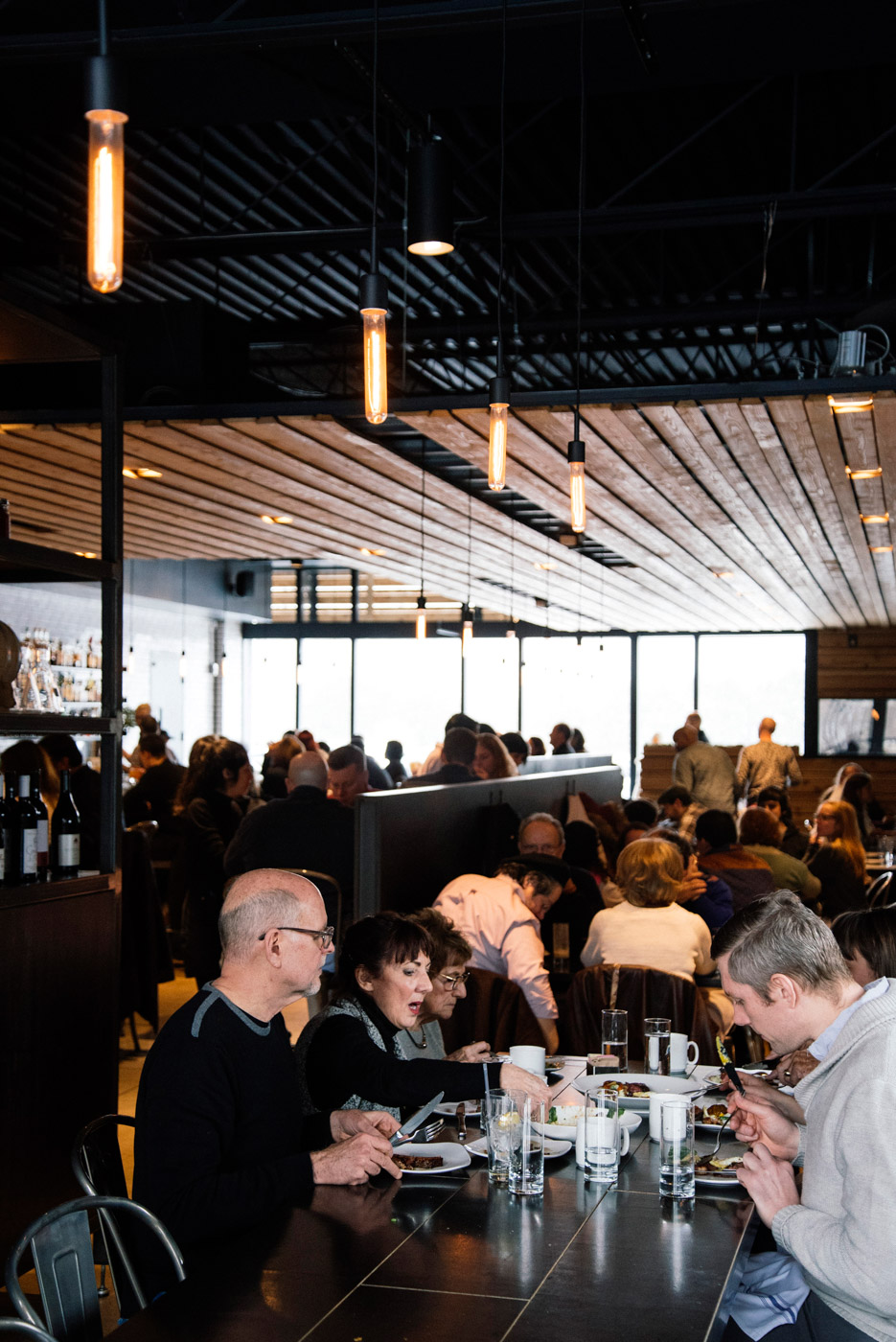
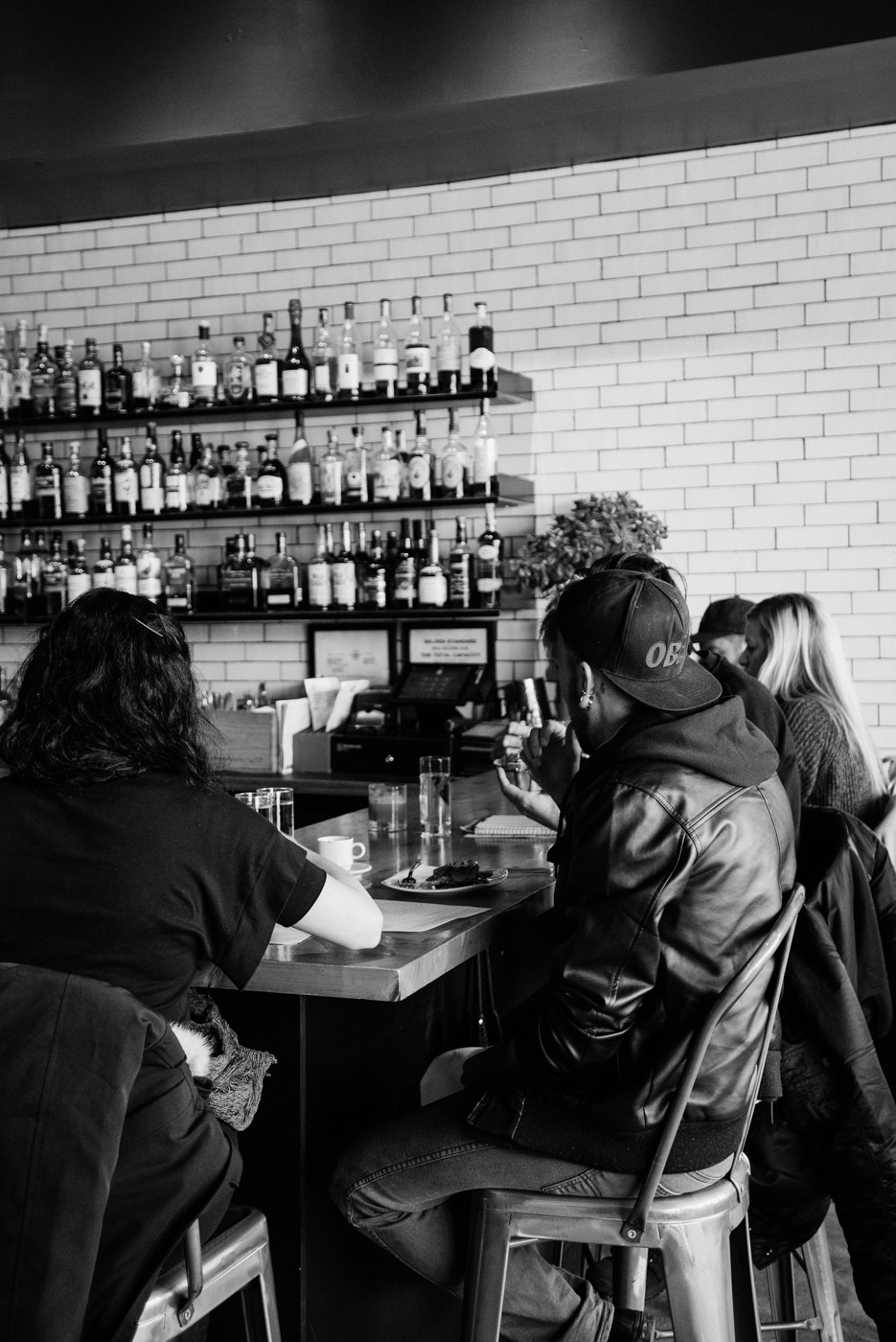
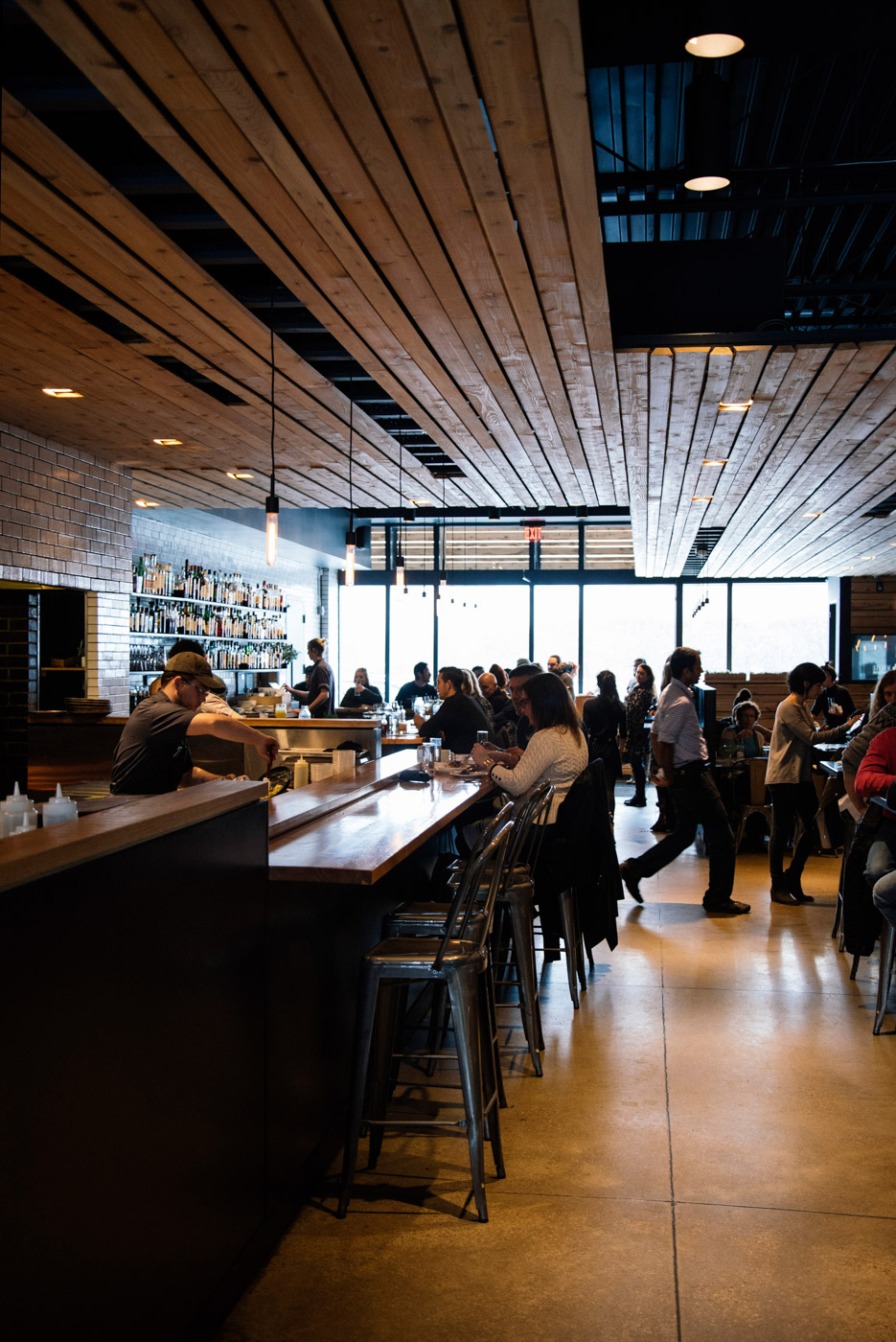

Beyond urban farming, one of RecoveryPark’s major programs is Blight Clean Up, a program which, according to their website, works to turn “vacant spaces back into productive use and making them welcoming workplaces for the people of the community.”
Hollyday is excited to see the new farm and surrounding community spring to life. He lives in the East Ferry Historic District, which he explains is a few miles from the new Recovery Farms location. Yet within this corridor, just across the highway there are a few neighborhoods that, he notes, “Could use a little love.”
That includes remnants of the old Western Market, where, Lutz explains, “Polish farmers used to come and sell their goods.”
“And it closed 30 years ago,” Hollyday continues. Prior to the closure, this was a thriving neighborhood. With RecoveryPark’s move in, there are hopes that the farm will offer a real chance at revitalization.
There is the concern of distance, as this is the Motor City. Cars built this city. Everyone has a car, and it’s often necessary to drive from one community to the next. There might be areas of opportunity in-between those communities, be it for farming or something else. There is hope that the pockets, those micro communities, will get stronger, that those dots will connect, filling in the blank spaces. “If something’s across town and it’s good,” Hollyday says, “I’m going to go check it out.”
Hollyday believes that it is important to establish relationships with farms, and also to support other business owners and restaurateurs. The Detroit food network connects through a variety of farmer-direct relationships, culinary events, clandestine dinners, pop ups and more. Likewise, other restaurateurs and business owners come to Selden; coincidentally, Katoi’s Brad Greenhill and Courtney Henriette are at the bar brainstorming over their own soon-to-be open space.
“Just like the people eating in here are supporting my business,” he says, “I go support other restaurants. We’re all helping each other out. That’s the big picture, just like the farms. It’s not just that I want carrots; I want the best carrots, so I buy directly from the farms in my community.” Perhaps then, the expansive network of urban agriculture is the driving force behind what makes a resilient Detroit restaurant.
——
Selden Standard
3921 2nd Ave, Detroit, MI 48201







Our comments section is for members only.
Join today to gain exclusive access.